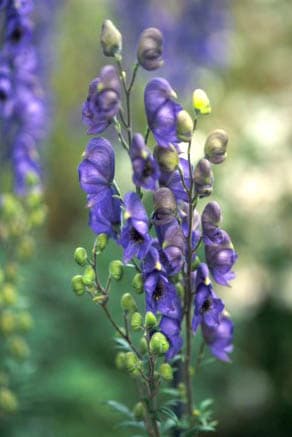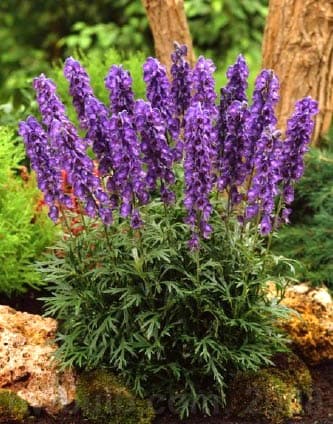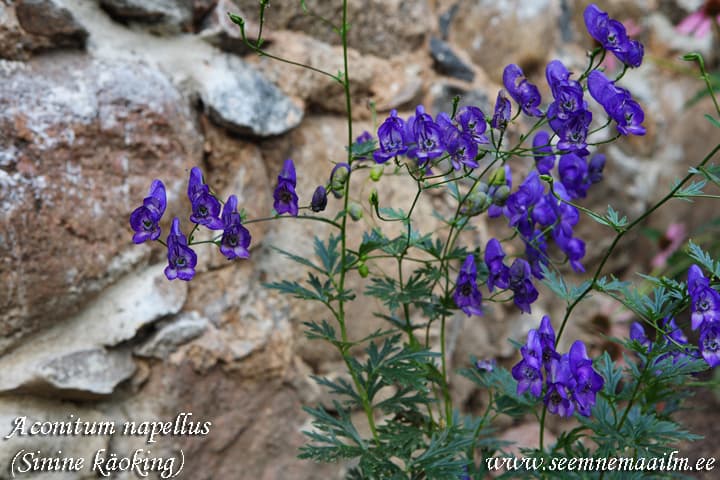
Perennial growing to 1.3 m. It is hardy to zone 6 and is not frost tender. It is in leaf from February to October, in flower from July to August, and the seeds ripen from June to July.
The flowers are hermaphrodite (have both male and female organs) and are pollinated by Bees. The plant prefers light (sandy), medium (loamy) and heavy (clay) soils.
The plant prefers acid, neutral and basic (alkaline) soils and can grow in very acid and very alkaline soils. It can grow in semi-shade (light woodland) or no shade. It requires moist soil.
Habitats and Possible Locations: Woodland, Dappled Shade.
Cultivation details.
Thrives in most soils and in the light shade of trees. Grows well in heavy clay soils. Prefers a moist soil in sun or semi-shade. Plants only thrive in a sunny position if the soil remains moist throughout the growing season. Prefers a calcareous soil. Tolerates a pH in the range 4.5 to 7.5. Plants take 2 - 3 years to flower when grown from seed. Grows well in open woodlands. The flowers are very attractive to bees. Members of this genus seem to be immune to the predations of rabbits and deer. Although the plant is a perennial, individual roots only live for one year and die after flowering. Each root produces a number of "daughter" roots before it dies and these can be used for propagating the plant. A greedy plant, inhibiting the growth of nearby species, especially legumes. An aggregate species which is divided by some botanists into many species.
Propagation Seed - best sown as soon as it is ripe in a cold frame. The seed can be stratified and sown in spring but will then be slow to germinate. When large enough to handle, prick the seedlings out into individual pots and grow them on in a cold frame for their first winter. Plant them out in late spring or early summer.
Division - best done in spring but it can also be done in autumn. Another report says that division is best carried out in the autumn or late winter because the plants come into growth very early in the year.


Aconit "Blue", Venus' chariot, Turk's-cap, soldier's-cap, friar's-cap, bear's-foot, true monkshood, aconite, auld wife's huid, blue rocket, cockoo's cap, friar's cap, garden monkshood, garden wolfsbane, helmet-flower, monk's-hood, poison aconite, Venus' chariot, wolfroot. Bot. syn.: Aconitum linnaeanum Gayer, Aconitum vulgare DC.











